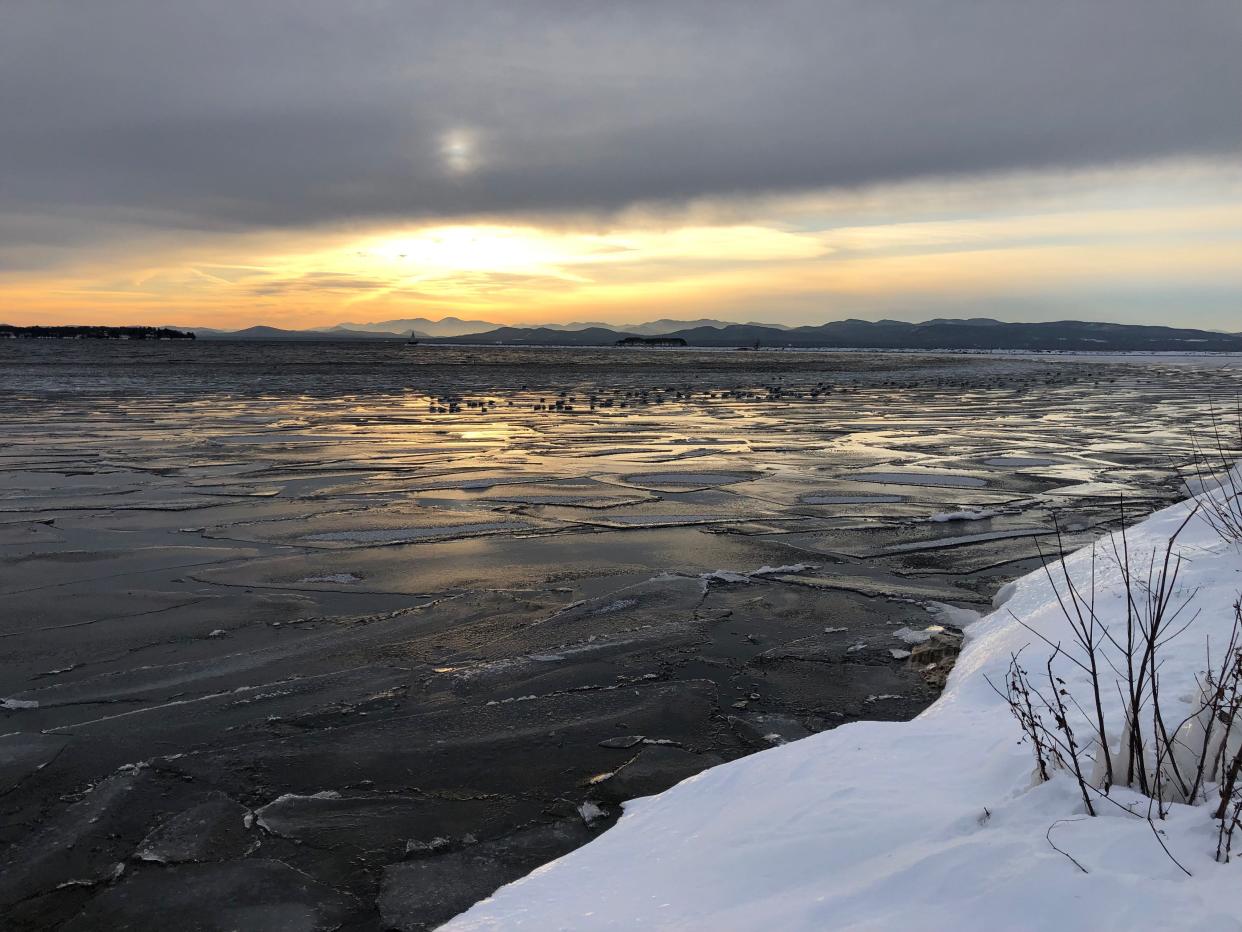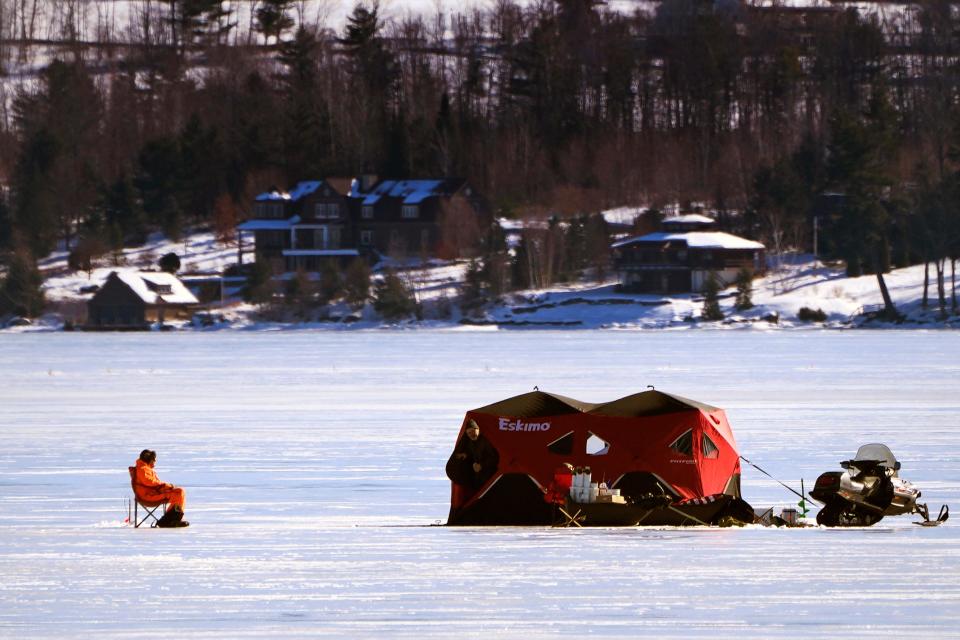Lake Champlain deaths prove need for vigilance among ice fishers

Tangling with nature can sometimes result in tragedy.
Tragedy in classical theater involved the downfall of a character caused by what the ancient Greeks referred to as hubris. Hubris might be loosely defined as inflated self-regard accompanied by a sense of invulnerability that leads to catastrophic choices – choices like those that led to the deaths of three fishermen who fell through thin ice a few days apart on Lake Champlain.
Nowadays, the term tragedy gets assigned to almost any accident or disaster that causes undue suffering. Though a definition of tragedy needn’t remain fossilized, the contemporary definition can miss the role people play in their own undoing.
The fishermen who died on the Vermont side of Lake Champlain a little more than a week ago were old enough – 62, 71 and 88 – to know they had moved to where they shouldn’t have been, especially given that, in ways difficult to ignore, nature has changed the winter game in Ohio and most other places.
Someone identifying as Craig noted that very phenomenon with a comment on the Lake Champlain story posted to Yahoo:
“When I was a child growing up in Northern Ohio in the 1980s we played pond hockey every day after school and all day on the weekends,” he wrote. “Now the ponds rarely freeze over and are less likely to develop an ice sheet strong enough for people to be on it.”
Saturday's outdoor faceoff in Cleveland, promoted as a sort of pond hockey game between Ohio State and Michigan, couldn’t have taken place without refrigeration at FirstEnergy Stadium.

Around the same time as the passing of the three men in Vermont, the Michigan Department of Natural Resources, citing an “unfortunate” lack of cold, issued an advisory. Shanties, the department said, might have to be removed from hard water before the date set by state regulations, the earliest being Feb. 26 on Lake St. Clair.
Michigan, which holds a small section of Lake Erie bordering Ohio water, cautioned that shanty owners “whose structures fall through the ice are subject to penalties of up to 30 days in jail, fines up to $500, or both.”
The Michigan advisory also mentioned that late-season ice is prone to wind-driven breakups, which have been known to send fishers on surprise journeys with no means to escape a wandering floe – short of a rescue by boat or helicopter.
Such rescues, not uncommon in the past, won’t be needed this year on the Ohio waters of Lake Erie. Ice sufficient to support crowds never materialized.
What might be tempting, however, is a too-early boating excursion across water still lethally frigid to where the yellow perch and walleye are. Or, closer to Columbus, where the saugeye and crappies are.
Balmy, beckoning days like those last week will come soon with regularity, though it takes more than a few such days for water to warm past the point of potentially deadly.
But a reminder: Hubris can birth tragedy in any weather.
This article originally appeared on The Columbus Dispatch: Deaths of 3 Vermont ice fishers at Lake Champlain show caution needed

